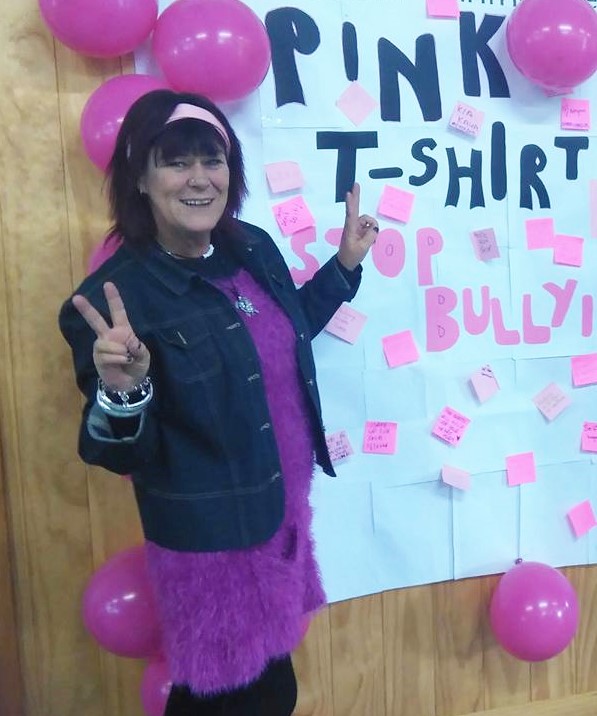Sheril Davy, veteran youth worker has a message to share: out of sight and out of mind, New Zealand’s rural youth population is suffering.
Mental health issues, the normalisation of drug and alcohol addictions, minimal employment opportunities and young people disengaged from education are all part of a standard working week for Ms Davy.
The South-East corner of New Zealand’s North Island is home to a number of small rural communities, cut off from the cities of Palmerston North and Wellington by rugged mountain ranges.
Despite the rugged beauty of the rural surrounds, Ms Davy says the area’s isolation means support is limited for the families and young people who live there.

New Zealand’s rural youth population is suffering, says youth worker Sheril Davy.
She has called Pahiatua home for the past 18 years and has been an integral part of the community with Tararua Community Youth Services since the youth centre was established 16 years ago.
“We live in a small rural community with limited access to services due to the district cut off points,” Ms Davy says.
“There are a lot of young people in our community whose needs are not being met due to transportation issues, limited access to higher education and healthcare, low incomes and sub-standard housing.”
In her work with Tararua Community Youth Services, Ms Davy helps provide a wrap-around service for all young people in the community.
That includes things such as: helping youth engage in further training or employment, mentoring, assisting and supporting young people with mental health issues and alcohol and other drug addictions, and eliminating barriers to ensure all young people that access the service are provided with good information, are connected back to their community, and are supported on their journey to adulthood.
Her passion for supporting youth is the main reason why she is taking on the New Zealand Apprenticeship in Mental Health and Addiction Support, with the support of her employer and Industry Training Organisation, Careerforce.
“One of the biggest challenges in our community and for our service is that we have literally become a one-stop-shop. We can’t access adequate mental health services,” Ms Davy says.
“This is the reason why I want to do the Mental Health and Addiction qualification, because I’m doing the work already but I don’t have that little piece of paper.”
Ms Davy says young people are not having their needs adequately met and the isolation doesn’t help. “Mental health and addictions are the biggest issues out here,” she says.
“I have 14-year-old boys doing crack, as its easier to get crack than pot. We still struggle with the normalisation of violence and addictions within families and our community. The isolation only adds to this.”
“Due to being a rural community with cheap rentals available we have a transient population. This can make it harder to keep track of where our young people are and what is going on in their worlds.”
Ms Davy sees that depression, suicidal ideation and self-harm has become a part of many young people’s worlds. Most of the young people she works with within those three areas would be at moderate to high risk. The last couple of years has shown an increase in intensity of these issues.

Sheril Davy has a passion for troubled youth and helps provide a wrap-around service for all young people in her community.
When necessary she uses her own transport to takes young people on the 45-minute drive to Palmerston North hospital because: “We ring the mental health crisis team and they don’t come.”
“Every day is hectic, draining and very isolated,” she says of her work, adding, “People don’t feel cared for here; they are screaming out for help and services aren’t doing what they are meant to be doing.”
The youth centre has around 75 young people on its books, aged from 10 – 19-years-old, and Ms Davy counts another 37 high-end youth who she monitors.
Out of these, around half are living at home, a quarter living in CYFs carers homes and under a quarter are living alone independently.
“But we go over and beyond what our contracts require from us; for all young people a part of our service we will assess barriers in their lives that could prevent them from getting ahead,” Ms Davy says.
“That could involve teaching them to drive, creating CVs, placing them on a Smashed and Stoned programme, referrals, support, advocacy, and giving them the tools and information that they need to help them make better informed choices later in life. We have a holistic approach in everything we do.”
Are you interested in a career in Mental Health and Addiction Support? Find out more here:
ENDS

